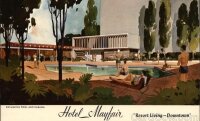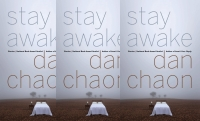An amber song, that street light glow that shimmers in rain storms, a seedy pornography in colour washes that highlights the edges of a world that should otherwise remain hidden. It picks out the lines and contours of her face, the angles of an idea registered in facial geometry. Such stark planes in monochrome; but in that orange sodium warmth, a heat blurs through from the horizon of her eyes, eating away blackness to reveal something more.
I was never entirely sure if that something was sinister or not. Whatever it was, it was violently alluring. Her eyes became as fists, grabbing my crotch, her face close to mine as her lips bled through red over black. She banished the black and white of her colour-run existence and became a flaming hymn of aggressive sensuality. The way she moved made me want her in ways I had never thought of, in ways that were buried, hidden, kept repressed by good morals and social conformity. With one slow smile she broke those barriers.
Night time hues in grey, the moonlight bleach on skin slick with sweat and sweet secret moments. Her movements sharp as a flick knife, flashing in strobes through doorway gates in movie scenes sewn and stitched together in a random lunatic theorem. She laughs in darkness, corners sing her voice against flat plasterboard; motes of dust float in a dance to her song.
On bare floorboards her feet slap gently, soft skipping with childlike merriment. She paints herself in the history of famous murders – she wants to be Mary Kelly, Elizabeth Short, Cecilia Ann Shephard. She wears the notoriety as a mask, a plaster façade to the world. And through narrow slits she watches, the voyeur at the curtains, as the dance goes on and on.
She lives in the tabloid crossroads of the city, where stone and concrete tell false stories and flash in the vulgar tones of short words spat out of exhaust pipes and chimney stacks. A pool of short term rentals, dominated by the Victorian hospital clinging to the hillside like an angular spider, a cubist arachnaphobic nightmare.
Her kitchen window looks out onto the rear gardens of the old hospital, where in the summer patients sometimes take walks, shuffling off-white ghosts in a nether-world of rusted black iron and flaking plaster. Sometimes she stands there sipping hot coffee, watching them, humming to herself in a slightly sinister minor key. I watch her from the doorway, her figure a flat black shape against the window.
Then she turns to me and red seeps through tissue paper, a cotton handkerchief in a sink of cold water, slowly bleeding. She puts the coffee cup down on the sheer white worktop and tilts her head to one side, eyes pulling me towards her. Her black arms spread around me, a hollowness eats away at my stomach.
Through the window, the spider-hospital lifts itself up from the slope, the sprawling dark sandstone buildings twisting into legs and beginning the awkward descent down the hillside. Patients try to flee the advance and are trampled by the eight, deliberate, slow moving legs, picking their way over the ground, moving with such intense precision.
Her red nails graze over the back of my neck, her lips glide my cheek. Outside on the hill, the spider-hospital draws closer, as her tongue flicks over my ear and she starts to whisper softly.
–
Kenny Mooney lives in Glasgow, Scotland and is a web developer, writer and musician. His work has appeared in Spilling Ink Review. He can be contacted at www.dragline.co.uk.







